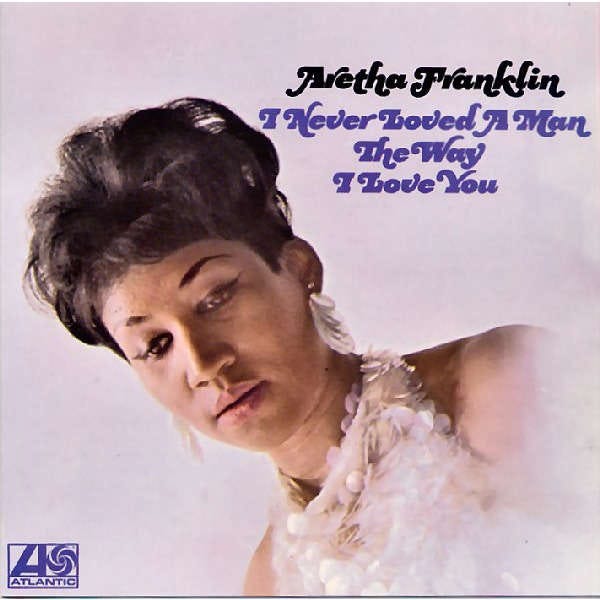Beyoncé's Lemonade stands tall in modern music's pantheon, attesting to the power of storytelling through song. In the annals of recent musical history, there are more albums and fewer statements. Lemonade firmly belongs to the latter category. Deeply intimate at times yet always universally resonant, the album takes listeners through grief, self-acceptance, empowerment, and healing. By reaching its closing track, ‘Formation’, we have travelled through personal introspection and arrived at a powerful assertion of identity and cultural heritage.
By 2016, Beyoncé was more than a pop icon; she was a cultural force. From her early days with Destiny's Child to her solo career, she consistently pushed boundaries and redefined her artistic identity. Lemonade was eagerly anticipated for its music and the promise of a deeper dive into Beyoncé's psyche, a promise that ‘Formation’ resoundingly fulfils. Compared to her earlier albums, 'Formation' showcases a Beyoncé unafraid to confront societal issues head-on, reflecting her maturity as an artist and a cultural commentator.
The narrative of Lemonade is a tapestry of emotions, each song representing a chapter in a larger story. While the album begins with the pain of betrayal, it soon delves into broader themes of black womanhood, societal expectations, and generational trauma. These tracks testify to Beyoncé's ability to intertwine personal stories with general historical and cultural narratives.
Beyoncé's narrative, while deeply personal, is not just her own. It mirrors the collective experiences of countless Black women who face similar struggles. Through her artistry, she turns the personal into the political, highlighting systemic issues that affect the broader Black community. Her journey of pain, betrayal, and redemption provides a voice for those who often go unheard, amplifying their stories on a global stage.
The album traces a clear emotional trajectory from the piercing vulnerability of ‘Pray You Catch Me’ to the fiery intensity of ‘Don't Hurt Yourself’. Each note, lyric, and rhythm is meticulously curated, building towards this overarching story. Culminating in ‘Formation’, the track isn't just another song but the zenith of this emotive journey. They are echoing sentiments from earlier tracks, where songs like ‘Sorry’ and ‘6 Inch’ spotlight Beyoncé’s resilience and autonomy; in the vast emotional landscape of Lemonade, ‘Formation’ serves as the final destination, a place where all the album's threads converge. It's as if Beyoncé has been building up to this moment, this declaration, throughout the album.
In the larger context of the album, ‘Formation’ is a celebration. But it's not just any celebration. It's a celebration of Black culture, heritage, and identity. Beyoncé uses the track to assert her place in the world, embracing her roots and proudly wearing her Black identity. The song's lyrics are filled with references to her journey, from her "Negro nose with Jackson Five nostrils" to the "hot sauce" in her bag. But these personal details are seamlessly woven into a larger tapestry of Black American experiences. Furthermore, the line 'I like my baby hair, with baby hair and afros' pays tribute to her daughter's natural hair and makes a broader statement about embracing realistic Black beauty standards in defiance of societal norms. By celebrating historically maligned or ridiculed features, Beyoncé reclaims these markers of Black identity and turns them into symbols of pride and empowerment.
Musically, ‘Formation’ is a rich blend of various influences. The infectious beats of New Orleans bounce music pulse throughout the track, a nod to Beyoncé's deep Southern roots. This musical choice serves a dual purpose: while it grounds the song in a specific cultural context, it also helps to make it accessible and popular. The energy of bounce music is infectious, turning ‘Formation’ into a dance anthem that resonates with audiences.
The song's bass-heavy undertones, punctuated by brass instruments, create an atmosphere of resilience and rebellion, while the occasional church organ evokes themes of spirituality and heritage. The melodic interplay and percussive rhythm give 'Formation' its unique musical identity that bridges traditional Southern Black music with contemporary R&B.
But beyond its musicality, ‘Formation’ is a statement. The accompanying music video, released just a day before Beyoncé's iconic Super Bowl 50 halftime performance, is a visual feast. It's a powerful reflection on Black America's history and the challenges its communities face. From the haunting image of a young boy dancing in front of police officers to the poignant scenes of post-Hurricane Katrina New Orleans, the video is a stark reminder of Black Americans’ systemic inequalities. Yet, it also stands as a testament to their resilience, strength, and spirit.
The strategic release of ‘Formation’ right before her Super Bowl performance was a masterstroke. Beyoncé utilised one of the world's biggest platforms to amplify the song's message. The halftime show turned the song into a cultural moment with its Black Panther-inspired imagery and powerful choreography. The performance was not just entertainment; it was a political statement, a call to action, and a celebration of Black excellence.
Returning to Lemonade, it becomes clear why ‘Formation’ was chosen as the album's closing track. After guiding listeners through personal relationships and self-worth complexities, Beyoncé expands the narrative to address societal issues. She reframes personal experiences within the broader context of Black America's collective history and challenges. In doing so, she positions ‘Formation’ as a bridge between the personal and the political, between the individual and the collective.
While much of Lemonade delves into deeply personal territories, revealing vulnerabilities and seeking atonement, the closing track is an anthem of unabashed empowerment. It's a declaration of self-worth and cultural pride. Beyoncé, having traversed the rocky terrains of personal anguish in preceding tracks, stands tall, urging her listeners to do the same – to get in formation, to organise, to be proud, to "slay."
Throughout her career, Beyoncé has consistently pushed boundaries, using her art to challenge societal norms and give voice to the marginalised. ‘Formation’ is a continuation of this legacy. It is more than a song; it's a movement. It's a call to recognise and celebrate Black culture, challenge systemic inequalities, and stand in solidarity with marginalised communities.
In the grander scheme of things, ‘Formation’ is a testament to Beyoncé's genius. It's a reminder of her unparalleled ability to weave complex narratives and craft profoundly personal and universally resonant music. More than anything, it's a testament to her status as a cultural icon, an artist who reflects the times and actively shapes them.
‘Formation’ stands as the crowning jewel of Lemonade. It encapsulates the album's essence, a powerful reminder of Beyoncé's influence and impact. As listeners, we are left inspired, empowered, and ready to join the formation. With Lemonade and especially with ‘Formation’, Beyoncé has not just given us music but an anthem, a rallying cry, and a blueprint for change.
The Run Out Grooves Infinite Loops
He said it's been a long time comin'
I've tried to avoid contrasting closing tracks with opening tracks so far on The Run Out Grooves, but this time, it feels tough not to. Aretha Franklin's 1967 album, I've Never Loved A Man The Way I Love You, was her tenth, but it was her first for Atlantic Records. By this point, the shackles were well and truly coming off, and within 18 months, she'd …







I always liked Destiny’s Child but didn’t pay much attention to Beyonce when she went solo. But “Formation” was when I truly fell in love. It is pure power. I remember that Lemonade came out two days after Prince died and it felt like a musical salve.